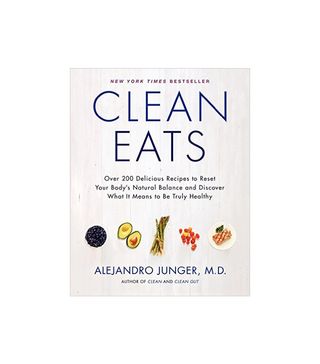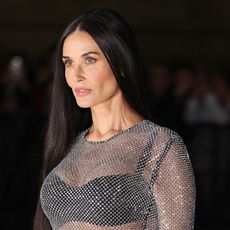5 Breakfast Foods You Should Probably Stop Eating, According to a Nutritionist

We get it—the end of the year is nigh, and you are busier than ever. When your plate is piled high with a jam-packed schedule, finding time to eat (and eat well) is often left off the e-cal. The solution? Preparing simple breakfasts that will keep you full through lunch, of course, but which ones? With so many new health movements and superfoods being announced daily, knowing which wellness trends are in (and out) can be a veritable minefield—who knew these "healthy" foods were bad for you?
So to help us discern the good breakfasts from the bad, we asked holistic nutritionist, health coach, and founder of Frolic and Flow, Carly Brawner, to give us the lowdown. Ahead Brawner shares her top five so-called "healthy" breakfast foods to avoid. It might be time to put down that granola breakfast bar.
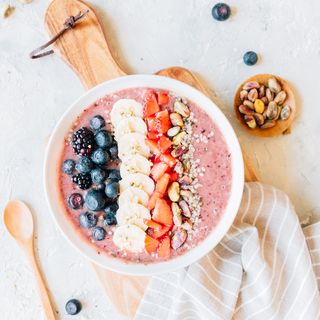
Açaí Bowls
Can it be true? Our much-loved superfood is actually doing our bodies more harm than good? Say it ain't so! According to Brawner, there is a common misconception that açaí bowls and fruit smoothie bowls are a healthy way to start the morning because they're light, easily digestible, and full of superfoods. But that couldn't be farther from the truth. "Generally, açaí bowls are just beautifully crafted, bright, and trendy bowls of sugar," she said. "Açaí bowls are full of both glucose and fructose that are naturally occurring from fruit and added to the blender in the form of sweetener, ice cream, and even just pure fruit juice. Add granola and tropical fruit toppings to the mix, and it's quickly evident that this is not the breakfast of champions."
So why is it bad for you? "Lots of sugar in the morning meals sets your body up for a day of blood sugar spikes, out of control hunger hormones, and more sugar cravings throughout the day," Brawner explains. But don't be quick to strike this delicious purple meal off the morning menu completely. Brawner says the homemade varieties are the best way to go. "Just make sure the base of your bowl is made up of healthy fats and protein, then add a bit of açaí fruit for flavor," she said. "Sprouted nuts and seeds, a grain-free granola, or berries are safe to top it off with."
Egg White Omelet
If you've been cutting out the egg yolk for fear of high cholesterol levels or their extra fat content, it's time to add them back in. "Egg whites alone aren't unhealthy," she said. "But you will miss out on the nutritional value that the yolk provides," she said. "Just eating the white part of the egg means choosing not to eat the majority of the vitamins and minerals an egg offers."
Egg yolks are packed with essential nutrients such as choline, vitamin D, B and A, iron, and selenium, very little of which is present in the whites. "So if you're going to toss any part of the egg, toss the whites," she said. "I recommend eggs from organic, pasture raised eggs from around your community or from Vital Farms."
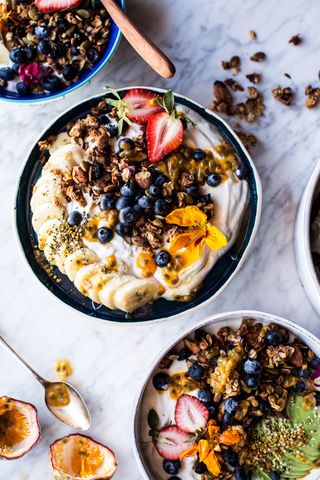
Conventional Yogurt
Who doesn't add a dash of yogurt to their cereal or breakfast smoothie each morning? Not only is it delicious, but also it's full of probiotics that are good for your gut health. Just be careful which ones you buy. "Not all dairy is created equal," said Brawner. "Conventional yogurt comes from the milk of conventionally raised cows, and conventionally raised cows are not healthy animals. Most yogurt is made from this milk."
So why is that a bad thing? "Conventionally raised cows are given antibiotics, growth hormones, steroids, and fed GMO corn that is sprayed with herbicides and pesticides," Brawner explained. "Consuming these harmful ingredients can cause early puberty, antibiotic resistance, and hormonal problems." All that aside, Brawner says most of this type of yogurt is loaded with sugar, sweeteners, preservatives, artificial colors, and chemicals that make their contents creamy and fluffy. "Some yogurts contain up to 25 grams of sugar per serving, which is way too much for a morning meal (or any meal)," she said.
But if you just can't give it up, Brawner says yogurt from the organic milk of grass-fed cows can be a healthy breakfast option. "Grass-fed yogurt that is low in sugar provides healthy bacteria to the gut, calcium, omega-3s, potassium, and many other important vitamins," she explains. "It's satiating and contains fat and protein, so it could be part of a healthy morning meal (just don't choose fat-free)."
Sugar-Free Sweeteners in Your Morning Coffee
We've been told repeatedly that sugar is bad, so in an effort to ditch it, many of us replaced it with sugar-free sweeteners. But this isn't the answer either. The fake stuff is just as bad for you. "Lots of my clients pour packets of fake sugar in their morning coffee, and it's something I make sure to educate them on right away," said Brawner. "Artificial sweeteners are still harmful, even if they aren't sugar. Consuming them regularly has been linked to the same health concerns as sugar: obesity, insulin sensitivity, glucose intolerance, high blood pressure, and more."
One to watch out for is sucralose, otherwise known as Splenda, which is a version of sugar that has been chemically altered. "Chlorine atoms are added to the sugar molecule, and oddly enough, chlorine is a known carcinogen," she said. "Would you like some chlorine with your coffee? I didn't think so."
Another one is aspartame, also known as Equal, a non-caloric sweetener used in numerous foods and drinks. "It's made from combining two chemicals in a lab and is about 150 times sweeter than sugar," she said. "You may notice a headache after a sweet drink? That's aspartame. Many claim the sweetener is linked to tumors and a variety of cancers. I avoid aspartame like the plague, and I encourage all of you to do the same."
Brawner recommends sugar-free coffee drinks, but for those of you who haven't broken your addiction yet, she says stevia drops, honey, or even organic cane sugar are best. But artificial sweeteners should be avoided at all costs.
Trail Mix
If you're always on the go, then a handy trail mix packet is often the perfect a.m. snack, right? Wrong. "Many people associate nuts with healthy fats and protein, but trail mix is another story," explains Brawner. "Trail mix is inconsistent. Each brand includes its own pick of ingredients and most include dried fruits, milk chocolates, candies, oats and refined grains, along with a ton of sweeteners and sugar. This doesn't sound like fuel for the beginning of a productive day."
As Brawner explained earlier in this piece, a lot of sugar in your morning meal brings about a blood sugar that is hard to control throughout the day. "Sugar, in general, contains zero healthy fats, no protein, no nutrients, and no enzymes either," she said. "It's pure empty calories that wreak havoc metabolically, raises cholesterol, fuels viruses, and feeds tumors. We need to de-sweeten our lives, pronto."
Next, see whether or not those colorful superfood lattes are actually healthy.
This article was originally published on MyDomaine and has since been updated.
Disclaimer
This article is provided for informational purposes only and is not intended to be used in the place of advice of your physician or other medical professionals. You should always consult with your doctor or healthcare provider first with any health-related questions.

Sacha Strebe is currently the editorial director of EyeSwoon. She has previously been the editorial director of Create & Cultivate, where she was responsible for the editorial vision, direction, and tone of the brand's digital platform, while also looking for new and creative opportunities for the business to expand both editorially and experientially to inspire and empower its community. She was also the editorial director for MyDomaine (former sister site to Who What Wear), where she diversified the site's coverage well beyond its home décor roots to create an all-encompassing digital lifestyle publication and, in turn, helped MyDomaine reach a lifetime traffic high. Prior to MyDomaine, she was a newspaper journalist in Australia working in the news and fashion features departments.
-
 Everything This Professional Ballet Dancer Eats to Fuel Her For Performances
Everything This Professional Ballet Dancer Eats to Fuel Her For PerformancesHer grocery staples include high-quality French butter.
By Candice Aman
-
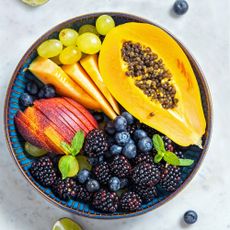 For Absolutely Glowy and Healthy Skin, These 10 Fruits Are a Must
For Absolutely Glowy and Healthy Skin, These 10 Fruits Are a MustAdd these to your grocery list.
By Samantha Parsons
-
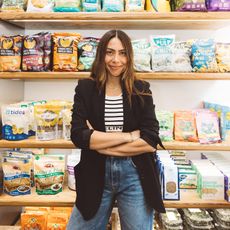 The Founder of Bonberi Shares the Grocery Staples She Can't Live Without
The Founder of Bonberi Shares the Grocery Staples She Can't Live WithoutThe foundation for simple and nourishing meals.
By Candice Aman
-
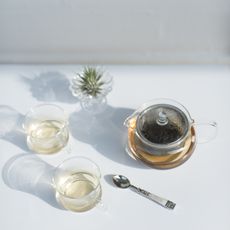 FYI: Drinking These Teas Will Get Rid of Bloating Fast
FYI: Drinking These Teas Will Get Rid of Bloating FastAdd these to your shopping list.
By Sarah Yang
-
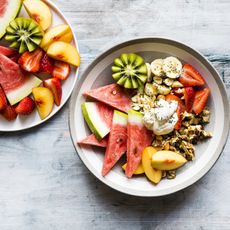 11 Low-Sugar Foods That Will Keep You Full and Curb Your Cravings
11 Low-Sugar Foods That Will Keep You Full and Curb Your CravingsLoad up on these for extra energy and balance.
By Caroline Dweck
-
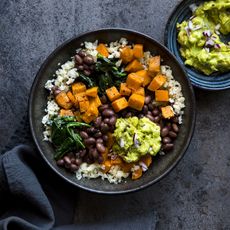 9 Foods to Eat If You Want Healthier Skin, Hair, and Nails
9 Foods to Eat If You Want Healthier Skin, Hair, and NailsFill your plate with them.
By Sarah Yang
-
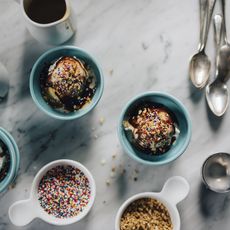 8 Ways to Cut Down on Sugar (and Not Be Cranky About It)
8 Ways to Cut Down on Sugar (and Not Be Cranky About It)Plus, sugar substitutes that do the trick.
By Sarah Yang
-
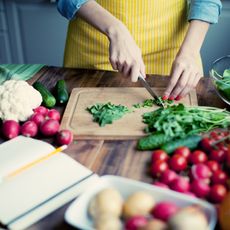 15 Cookbooks That Will Actually Make You Want to Eat at Home
15 Cookbooks That Will Actually Make You Want to Eat at HomeGet cooking.
By Sarah Yang
